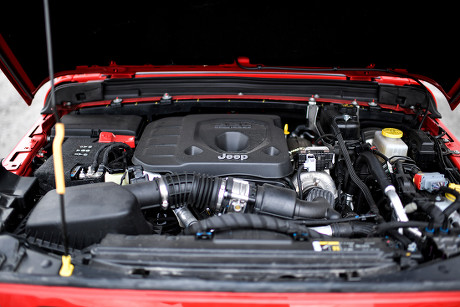In the realm of off-road adventure, the thrill of exploration often comes hand in hand with the challenges posed by rugged terrain and extreme conditions. Amidst the exhilaration of conquering new trails, one formidable foe stands in the way: engine overheating. Whether you’re navigating rocky terrains in a Jeep or tearing through the wilderness in a Ford Bronco, the risk of overheating can put a damper on your off-road escapades. Understanding the diverse factors contributing to engine overheating is paramount for off-road enthusiasts, ensuring not only the safety of their vehicle but also the continuity of their adventures. Join us as we delve into the intricacies of troubleshooting engine overheating in off-road vehicles, empowering adventurers to conquer the trails with confidence and resilience.
Identifying Causes of Engine Overheating in Off-Road Vehicles
If your off-road rig is experiencing engine overheating, understanding the underlying causes is crucial for effective troubleshooting and resolution. Here’s a comprehensive guide to uncover the diverse factors contributing to engine overheating in your Jeep, Ford Bronco, or any other off-road vehicle.
- Radiator Cap: Maintaining the proper pressure in the cooling system is essential for preventing overheating. A faulty radiator cap can lead to coolant loss and decreased system efficiency. Regular inspection and replacement of the radiator cap ensure optimal performance.
- Water/Coolant Level: Adequate coolant levels and the correct coolant-to-water ratio are vital for efficient heat dissipation. Improper ratios or coolant degradation can compromise cooling system effectiveness, leading to overheating.
- Radiator Hose: Inspecting radiator hoses for cracks, leaks, or restrictions is crucial. Damaged hoses can impede coolant flow, contributing to engine overheating. Ensure hoses are properly routed to avoid kinks or blockages.
- Thermostat: A malfunctioning thermostat can disrupt coolant flow, leading to erratic temperature regulation. Regular testing and replacement of the thermostat prevent overheating and ensure optimal engine performance.
- Fan Belts: Properly functioning fan belts are essential for driving the water pump and maintaining coolant circulation. Worn or broken fan belts can result in decreased coolant flow, leading to engine overheating.
- Water Pump: A failing water pump can impede coolant circulation, resulting in inadequate heat dissipation. Addressing leaks or bearing failures promptly ensures optimal water pump performance and prevents engine overheating.
- Fan Clutch: The fan clutch regulates fan speed based on engine temperature, optimizing cooling system efficiency. Signs of a worn or defective fan clutch include excessive free-wheeling, poor A/C performance, or abnormal engine vibrations.
- Fan Shroud: A intact fan shroud directs airflow through the radiator, enhancing cooling system efficiency. Damaged or missing fan shrouds can impede airflow, contributing to engine overheating.
- Radiator: A properly functioning radiator is crucial for dissipating engine heat. Leaks, corrosion, or blockages in the radiator can compromise cooling system performance, leading to overheating.
- Engine cleanliness: Dirt or mud accumulation on the engine can act as insulation, trapping heat and contributing to overheating. Regular cleaning of the engine bay ensures optimal heat dissipation and prevents overheating.
- Transmission: Automatic transmissions can generate additional heat, impacting engine temperature. Installing a transmission cooler and ensuring proper cooling system integration mitigate transmission-induced overheating.
- Head Gasket: A faulty head gasket can result in coolant loss or combustion gas leakage, leading to engine overheating. Regular inspection and prompt replacement of the head gasket prevent catastrophic engine damage.
Additional Contributors to Engine Heat:
- Friction: Regular engine oil changes and proper lubrication reduce internal friction, preventing overheating.
- Engine Compartment Overcrowding: Adequate engine bay space allows for optimal heat dissipation, reducing the risk of overheating.
- Engine Tuning: Proper tuning and maintenance optimize engine performance and prevent excessive heat generation.
By addressing these potential causes of engine overheating, off-road enthusiasts can ensure reliable performance and extend the lifespan of their vehicles in challenging terrain. Regular maintenance and proactive troubleshooting are essential for preventing overheating and maximizing off-road adventures.
As an E3 Offroad & Overland member, you get access to TONS of informative offroad and overland articles and content. Sign Up or Log In today and enjoy all of the tools, resources, product discounts, community and entertainment that E3 Offroad / Overland Association offers.

